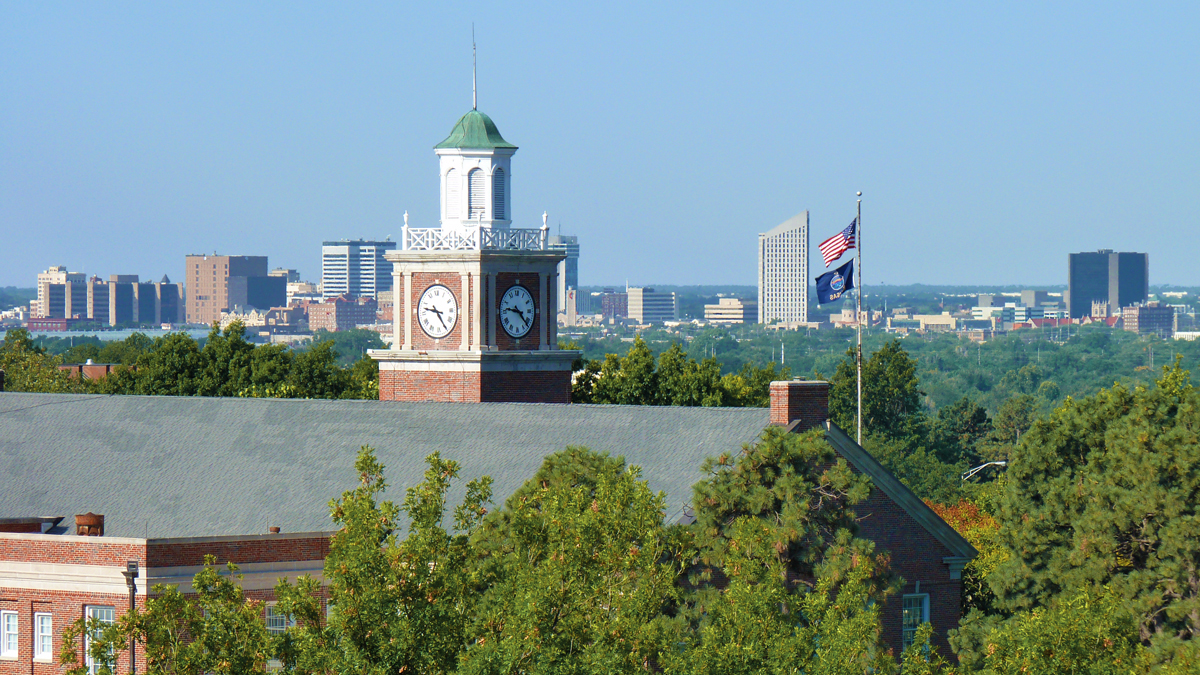
The Future of Wichita and WSU’s Critical Role
By Dr. John Bardo
 10 steps to faster state and local economic growth
10 steps to faster state and local economic growth
A recent Wichita Eagle article raised the question: “Can the governor make Kansas
and Wichita grow faster?” The answer is undoubtedly “yes” if the governor, Legislature
and local officials focus on these 10 key policy dimensions:
• A continuously educated workforce is most important. Wichita and Kansas are short
of the technical school and college-trained tech workers needed for existing employers
and for creating the technology-based companies that produce the most net new jobs
nationally.
• Science and technology-based entrepreneurship must be encouraged, along with early
stage public and private investments to support it. The state needs an integrated
policy and funding that encourages applications for federal SBIR and STTR grants on
the path to patents and commercialization of intellectual property developed in Kansas.
• Our high concentration of engineers creates a problem-solving culture that is not
being well utilized. The region and state need integrated plans that create policy
and funding to systematically promote the types of engineering that can lead to innovation
in existing industries and create new industries that diversity the economic base.
• Materials science and chemical engineering are both underfunded fields in Kansas
that can be a critical driver of engineering innovation and business formation.
• Applied research at the graduate level and R&D by industry are critical infrastructure
needs. For example, this region is a center for industrial lubricants, yet most engineers
required to push these businesses forward have to be imported from out of state. Local
chemical and materials academic programs and research are both are necessary to grow
this cluster.
• Today, Kansas ranks low compared to other states in R&D to the point where the
federal government has made the state eligible for special funds to try to improve
the state’s research infrastructure.
• The agriculture and petroleum industries spread across the rural areas of the state
could greatly need access to fast broadband for data transmission on such issues as
time to water, time to fertilize, minimizing oil spills, quickly solving issues with
pumps and the like. Kansas needs to get the “Internet of Things” to all areas.
• Artificial intelligence, cybersecurity and digital game development are producing
jobs and prosperity in many regions of the country. Experiments with artificial intelligence
in traditional aircraft research is producing new designs for non-structural components
of aircraft that look totally different and are lighter and stronger than components
that they would replace. Add artificial intelligence and materials engineering, and
Wichita would have a powerful engine to drive future development. Wichita has the
beginnings of a cyber-security cluster between its military and educational institutions.
Gaming platforms have gone beyond time-killing to become the basis for new methods
of educating and training and new ways to create new products and processes.
• Both the metro area and the state need to develop formal, broad-ranging policies
that support quality of life. Talented people are in high demand and they can live
wherever they choose. They choose communities with high quality education, arts, health
care, environment, low crime and general livability. There is a reason why nationally
“STEAM” is replacing “STEM” (the “A” stands for arts) in the models of development
that are most effective.
• With continued city and state help and local support, WSU and WSU Tech will continue
to foster innovation to help our students succeed and fuel the growth of our region
and state.

